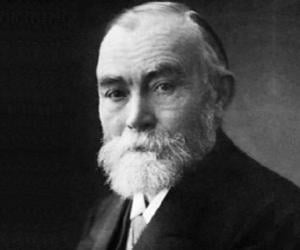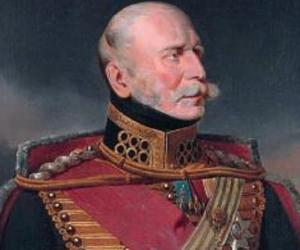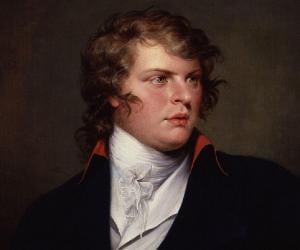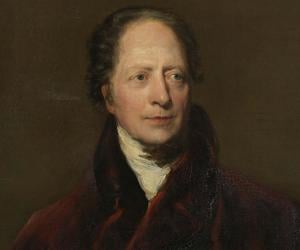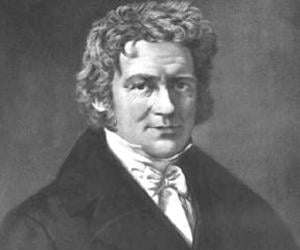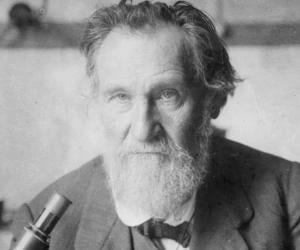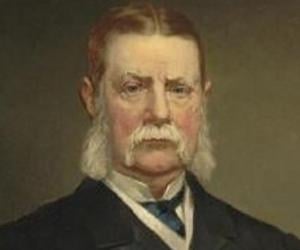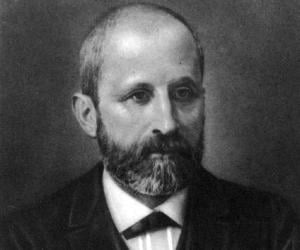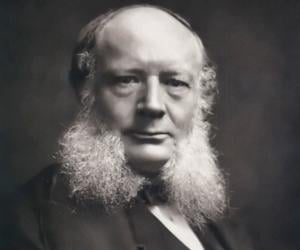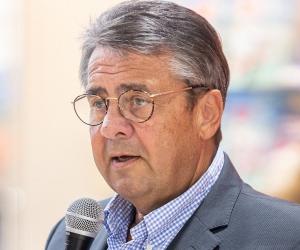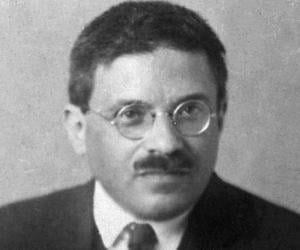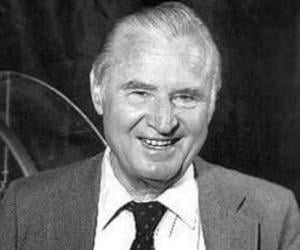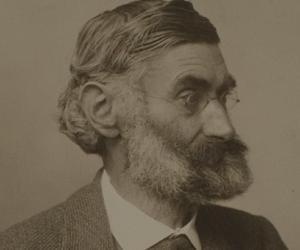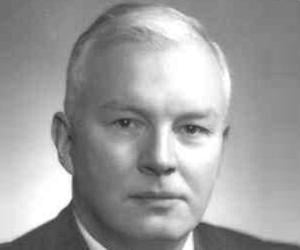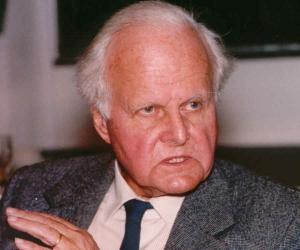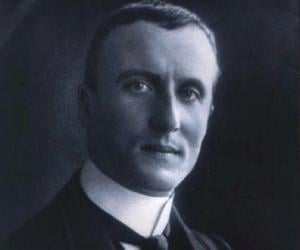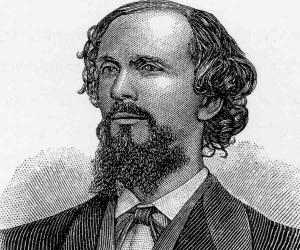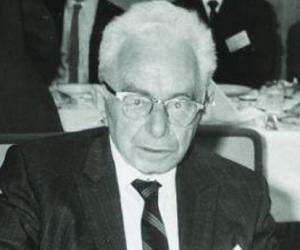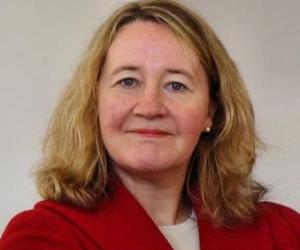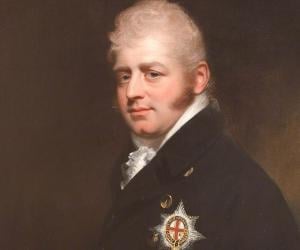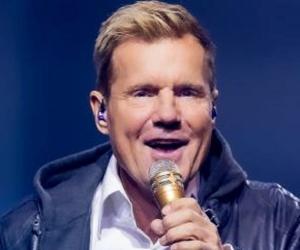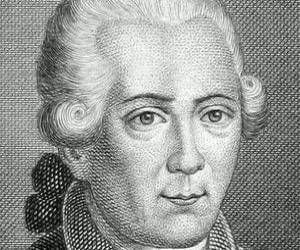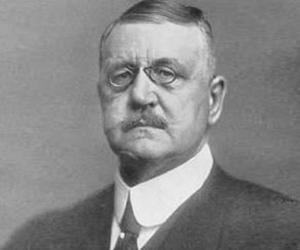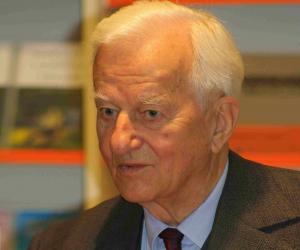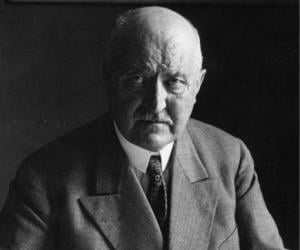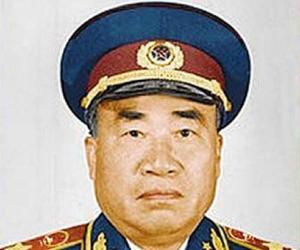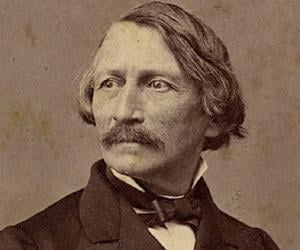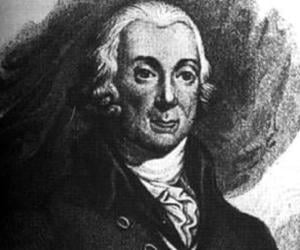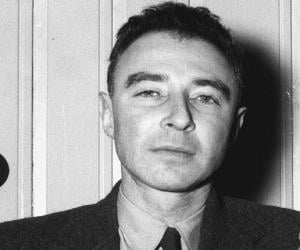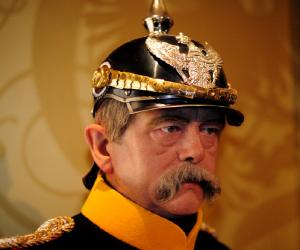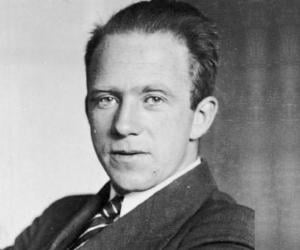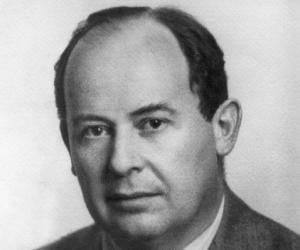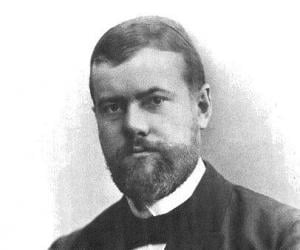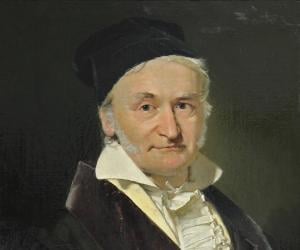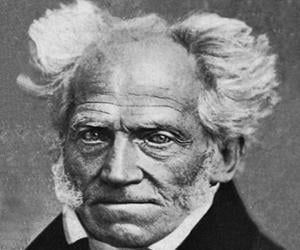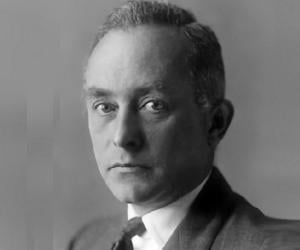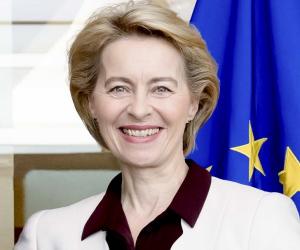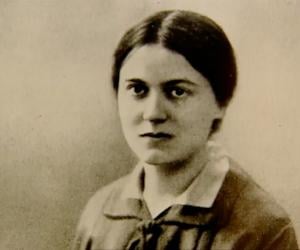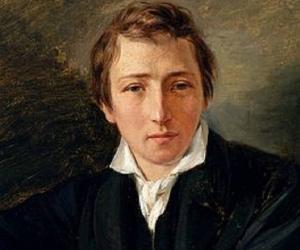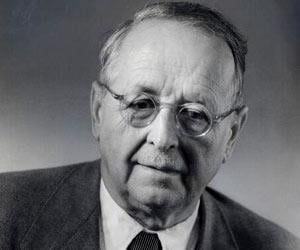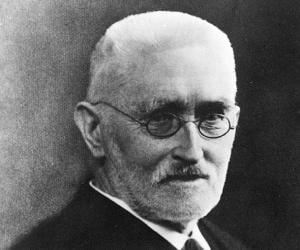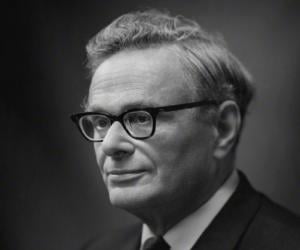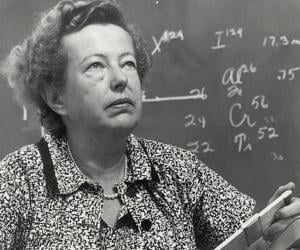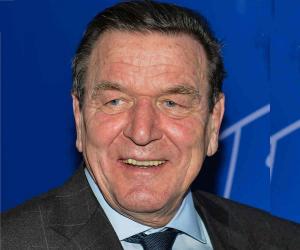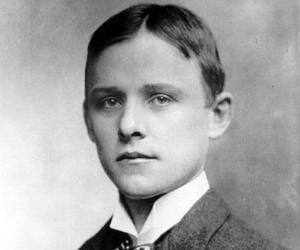University Of Göttingen
Discover the notable alumni of University Of Göttingen. The list includes people like Max Weber, Heinrich Heine, Charles Martin Hall, Gerhard Schröder & Prince Adolphus, Duke of Cambridge. This list of notable alumni is loosely sorted by popularity and has people from different domains of life, such as intellectuals & academics, miscellaneous, writers, scientists and leaders etc.
Vote for Your Favourite University Of Göttingen
Right IconThis ranking is based on an algorithm that combines various factors, including the votes of our users and search trends on the internet.
1
J. Robert Oppenheimer(American Theoretical Physicist and Former Wartime Head of the ‘Los Alamos Laboratory’)
Birthdate: April 22, 1904
Sun Sign: Taurus
Birthplace: New York, New York, United States
Died: February 18, 1967
Hailed as a brilliant scientific mind, American physicist J Robert Oppenheimer, led the Manhattan Project which resulted in the development of atomic bomb during the World War II. The bombs were dropped on the Japanese cities of Hiroshima and Nagasaki in 1945. However, Oppenheimer was in a constant conflict over the moral issue of the weapons of mass destruction and rallied against nuclear proliferation.
Birthdate: April 1, 1815
Sun Sign: Aries
Birthplace: Schönhausen, Germany
Died: July 30, 1898
Otto von Bismarck was a German statesman. Bismarck is credited with masterminding the unification of Germany and served as its first chancellor. He is also credited with creating the first modern welfare state in the world. Regarded as a hero by German nationalists, Otto von Bismarck's life has inspired a couple of TV series.
3
Werner Heisenberg(German Theoretical Physicist and One of the Main Pioneers of the Theory of Quantum Mechanics)
Birthdate: December 5, 1901
Sun Sign: Sagittarius
Birthplace: Würzburg, Germany
Died: February 1, 1976
German theoretical physicist Werner Heisenberg is best known for pioneering quantum mechanics. He received the 1932 Nobel Prize in Physics. He had also helped Germany plan nuclear weapon strategies during World War II and was the director of what is now known as the Max Planck Institute for Physics.
4
John von Neumann(Great Mathematician Who Was Equally at Home in Pure and Applied Mathematics)
Birthdate: December 28, 1903
Sun Sign: Capricorn
Birthplace: Budapest, Hungary
Died: February 8, 1957
Hungarian-American scientist John von Neumann contributed to the development of game theory and the concept of self-replication. His work covered vast areas including math, economics, physics, and computer science. His research on nuclear physics led him to be part of the advisory committee of the U.S. Atomic Energy Commission.
Birthdate: April 21, 1864
Sun Sign: Taurus
Birthplace: Erfurt, Germany
Died: June 14, 1920
Max Weber was a German historian, political economist, jurist, and sociologist. Widely regarded as one of the most influential and important theorists, Weber's ideas had a profound influence on social research and social theory. Although he did not see himself as a sociologist, Weber is often counted among the fathers of sociology alongside Émile Durkheim, Auguste Comte, and Karl Marx.
Birthdate: April 30, 1777
Sun Sign: Taurus
Birthplace: Brunswick, Germany
Died: February 23, 1855
German mathematician and physicist Carl Friedrich Gauss is remembered for his work in math and science. Known as the Princeps mathematicorum, he laid down tenets such as the Gauss's Law. He had exhibited his talent since an early age and had completed writing Disquisitiones Arithmeticae by 21.
7
Arthur Schopenhauer(German Philosopher Best Known for His Work ‘The World as Will and Representation’)
Birthdate: February 22, 1788
Sun Sign: Pisces
Birthplace: Gdańsk, Poland
Died: September 21, 1860
Arthur Schopenhauer was a German philosopher. He was among the first Western philosophers to affirm important tenets of Indian philosophy, such as denial of the self and asceticism. Schopenhauer's work has had a tremendous posthumous impact on disciplines like science, literature, and philosophy. His work influenced personalities like Albert Einstein, Ludwig Wittgenstein, Sigmund Freud, George Bernard Shaw, and Leo Tolstoy.
8
Max Born(German Physicist Who Won Nobel Prize for His Contribution to Quantum Mechanics)
Birthdate: December 11, 1882
Sun Sign: Sagittarius
Birthplace: Wrocław, Poland
Died: January 5, 1970
From being home-schooled for being too sickly to attend school, Max Born went on to win the Nobel Prize in Physics for his contribution to quantum mechanics. Being a Jew, with the rise of the Nazi power, he lost his professorship at the University of Göttingen, and moved to Cambridge.
Birthdate: October 8, 1958
Sun Sign: Libra
Birthplace: Ixelles, Belgium
Ursula Gertrud von der Leyen is currently serving as the first president of the European Commission. Named to Time 100 in 2020, she has previously been the first female defense minister of Germany, and has held positions such as the deputy leader of the CDU and the minister of labor.
10
Gottlob Frege
(Philosopher)
Birthdate: November 8, 1848
Sun Sign: Scorpio
Birthplace: Wismar, Germany
Died: July 26, 1925
11
Edith Stein(Philosopher, Christian Nun and One of the Six 'Patron Saints of Europe')
Birthdate: October 12, 1891
Sun Sign: Libra
Birthplace: Wrocław, Poland
Died: August 9, 1942
Edith Stein was a German Jewish philosopher who studied at the University of Freiburg and completed her dissertation on empathy. Always interested in Catholicism, she read the autobiography of the mystic Teresa of Ávila and converted to Christianity, and became a Discalced Carmelite nun. She was killed in the Auschwitz concentration camp and is canonized as a martyr.
12
Heinrich Heine(German Poet & Literary Critic Know for His Works 'Germany. A Winter's Tale' and 'Buch der Lieder')
Birthdate: December 13, 1797
Sun Sign: Sagittarius
Birthplace: Düsseldorf, Germany
Died: February 17, 1856
Heinrich Heine was a German poet, literary critic, and writer. He is known internationally for his lyric poetry, which was popularized by composers like Franz Schubert and Robert Schumann who adapted Heine's lyric poetry into art songs. Heinrich Heine's radical political views forced the German authorities to ban his works, which only added to his popularity.
Birthdate: November 9, 1885
Sun Sign: Scorpio
Birthplace: Elmshorn, Germany
Died: December 8, 1955
Hermann Klaus Hugo Wey is remembered for his contribution to both physics and math. He was one of the first scientists to think of merging the concepts of electromagnetism and relativity. He moved from the University of Göttingen to Princeton in the wake of the rise of the Nazi reign.
14
Ernest Augustus, King of Hanover
(King of Hanover)
Birthdate: June 5, 1771
Sun Sign: Gemini
Birthplace: London, England
Died: November 18, 1851
15
Prince Augustus Frederick, Duke of Sussex
(Prince)
Birthdate: January 27, 1773
Sun Sign: Aquarius
Birthplace: Buckingham House, London, England
Died: April 21, 1843
16
Johann Friedrich Blumenbach
(German Physician & Naturalist Considered to be a Main Founder of 'Zoology' and 'Anthropology' as Comparative, Scientific Disciplines)
Birthdate: May 11, 1752
Sun Sign: Taurus
Birthplace: Gotha, Germany
Died: January 22, 1840
A pioneer of physical anthropology, Johann Friedrich Blumenbach laid down one of the first racial classification systems for humans after studying human skulls, dividing mankind into five racial groups. Born into a family of academics, he was a prodigy. He was against scientific racism, though his theory promoted the degenerative hypothesis.
17
Rudolf Otto
(German Theologian and One of the Most Influential Scholars of Religion in the Early Twentieth Century)
Birthdate: September 25, 1869
Sun Sign: Libra
Birthplace: Peine, Germany
Died: March 6, 1937
Initially a professor of theology, philosopher Rudolf Otto later contributed to some of the most significant works of theology, such as The Idea of the Holy. He was also a member of the Prussian Parliament and is remembered for his services to Christianity and his idea of numinous.
18
Wilhelm von Humboldt
(Prussian Philosopher, Diplomat, Government Functionary, and Linguist)
Birthdate: June 22, 1767
Sun Sign: Cancer
Birthplace: Potsdam, Germany
Died: April 8, 1835
19
Richard Dedekind(German Mathematician Known for His Important Contributions to Number Theory, Abstract Algebra and Modern Set Theory)
Birthdate: October 6, 1831
Sun Sign: Libra
Birthplace: Brunswick, Germany
Died: February 12, 1916
German mathematician Richard Dedekind is best remembered for his ideas on the real number and infinity. Initially interested in subjects such as physics and chemistry, he later deviated to math. He taught at various institutes and was awarded honorary doctorates from universities of Zurich, Oslo, and Braunschweig.
20
Friedrich Bessel
(German Astronomer, Mathematician, Physicist, and Geodesist)
Birthdate: July 22, 1784
Sun Sign: Cancer
Birthplace: Minden, Germany
Died: March 17, 1846
Friedrich Bessel was a German mathematician, astronomer, geodesist, and physicist. He was the first astronomer to use the method of parallax in order to determine the distance of a star from the sun. Bessel was a much-respected figure during his time. He was honored with the Gold Medal of the Royal Astronomical Society.
21
Élie Metchnikoff
(Former zoologist best known for his pioneering research in immunology)
Birthdate: May 15, 1845
Sun Sign: Taurus
Birthplace: Ukraine
Died: July 15, 1916
22
John Jacob Astor III
(Financier, Philanthropist)
Birthdate: June 10, 1822
Sun Sign: Gemini
Birthplace: New York City, New York, United States
Died: February 22, 1890
23
Friedrich Miescher
(First Scientist to Isolate Nucleic Acid in 1869)
Birthdate: August 13, 1844
Sun Sign: Leo
Birthplace: Basel, Switzerland
Died: August 26, 1895
Apart from being the first to discover nucleic acid, Swiss biochemist Friedrich Miescher also isolated protamine, a protein associated with nucleic acid. Born to a scientifically rich family, he initially wished to become a doctor, but rendered partially deaf due to typhoid, he later chose physiological chemistry.
24
Hans Adolf Krebs(British Biologist Who was a Pioneer Scientist in the Study of Cellular Perspiration)
Birthdate: August 25, 1900
Sun Sign: Virgo
Birthplace: Hildesheim, Germany
Died: November 22, 1981
Born to an ENT surgeon in Germany, Hans Adolf Krebs followed in his father’s footsteps and studied medicine. After fleeing Nazi Germany, he went to England, where he joined the University of Cambridge as a researcher. The Nobel Prize-winning scientist is remembered for his groundbreaking discovery of cellular respiration.
25
Carl Wilhelm Siemens
(German-British Electrical Engineer and Businessman)
Birthdate: April 4, 1823
Sun Sign: Aries
Birthplace: Gehrden, Germany
Died: November 19, 1883
German-British inventor and electrical engineer, who revolutionized the steel-making and glass-making industries, is best remembered for using the Siemens-Martin process to create the regenerative furnace. His achievements earned him accolades such as the Albert Medal. He was a Fellow of The Royal Society and was knighted shortly before his death.
26
Sigmar Gabriel
(Politician and Vice-Chancellor of Germany From 2013 to 2018)
Birthdate: September 12, 1959
Sun Sign: Virgo
Birthplace: Goslar, Germany
27
Paul Ehrenfest
(Austrian Theoretical Physicist Who Made Major Contributions to the Field of Statistical Mechanics)
Birthdate: January 18, 1880
Sun Sign: Capricorn
Birthplace: Vienna, Austria
Died: September 25, 1933
Paul Ehrenfest was an Austrian-Dutch theoretical physicist. A close associate of Albert Einstein, whom he had met during his visit to Prague in 1912, Ehrenfest frequently hosted Einstein in Leiden where he was serving as a professor. Paul Ehrenfest is best remembered for his work in the field of statistical mechanics.
28
Hans von Ohain
(Physicist)
Birthdate: December 14, 1911
Sun Sign: Sagittarius
Birthplace: Dessau, Duchy of Anhalt, Germany
Died: March 13, 1998
29
Ernst Abbe
(German Physicist, Optical Scientist and Entrepreneur)
Birthdate: January 23, 1840
Sun Sign: Aquarius
Birthplace: Eisenach, Germany
Died: January 14, 1905
30
Haskell Curry
(Mathematician)
Birthdate: September 12, 1900
Sun Sign: Virgo
Birthplace: Millis, Massachusetts, United States
Died: September 1, 1982
31
Carl Friedrich von Weizsäcker
(Physicist)
Birthdate: June 28, 1912
Sun Sign: Cancer
Birthplace: Kiel, Germany
Died: April 28, 2007
Birthdate: June 28, 1906
Sun Sign: Cancer
Birthplace: Katowice, Poland
Died: February 20, 1972
33
Constantin Carathéodory
(Greek Mathematician Who Made Important Contributions to the Theory of Real Functions and to the Calculus of Variations)
Birthdate: September 13, 1873
Sun Sign: Virgo
Birthplace: Berlin, Germany
Died: February 2, 1950
Greek-origin German mathematician Constantin Carathéodory is best remembered for his work on concepts such as real functions and the calculus of variations. Initially an engineer working for a British project in Egypt, he later switched to study math. He also taught at the universities of Berlin and Munich.
34
Karl Heinrich Ulrichs
(German Lawyer and Jurist Who is Regarded as a Pioneer of Sexology and the Modern Gay Rights Movement)
Birthdate: August 28, 1825
Sun Sign: Virgo
Birthplace: Aurich, Germany
Died: July 14, 1895
Karl Heinrich Ulrichs was a German lawyer, journalist, jurist, and writer. Today, he is widely regarded as a pioneer of the modern gay rights movement and sexology. Ulrichs is considered the first openly gay man in the history of mankind. In August 1867, Karl Heinrich Ulrichs urged the goverment to revoke anti-homosexual laws, becoming the first homosexual to do so.
35
Richard Courant
(German American Mathematician)
Birthdate: January 8, 1888
Sun Sign: Capricorn
Birthplace: Lubliniec, Poland
Died: January 27, 1972
36
Carol W. Greider
(American Molecular Biologist and Nobel Laureate)
Birthdate: April 15, 1961
Sun Sign: Aries
Birthplace: San Diego, California, United States
Carol W. Greider is a molecular biologist who discovered the enzyme telomerase in 1984. Her discovery was honored several years later when she received the 2009 Nobel Prize for Physiology or Medicine, along with Blackburn and Jack W. Szostak for their work on telomeres. The trio also shared the Albert Lasker Award for Basic Medical Research for the same work.
37
Prince Adolphus, Duke of Cambridge
(Marshal)
Birthdate: February 24, 1774
Sun Sign: Pisces
Birthplace: Buckingham Palace, London, England
Died: July 8, 1850
Birthdate: April 7, 1944
Sun Sign: Aries
Birthplace: Blomberg, Free State of Lippe, Nazi Germany
Gerhard Schröder is a German retired lawyer, politician, lobbyist, and consultant. From 1998 to 2005, Schröder served as the chancellor of Germany. He is currently serving as chairman of the popular energy company Rosneft. An influential figure, Gerhard Schröder has represented Germany on a couple of occasions, including the funeral services for Fidel Castro and Boris Yeltsin.
39
Dieter Bohlen
(German Songwriter and Music Producer Best Known for Being a Part of the Group 'Modern Talking')
Birthdate: February 7, 1954
Sun Sign: Aquarius
Birthplace: Berne, Germany
German singer/songwriter Dieter Bohlen redefined the Eurobeat in the 1980s and is also known as the Pop-Titan. He formed the duo Modern Talking with Thomas Anders, creating international superhits such as Brother Louie. He later went solo as Blue System, releasing hits such as Gangster Love, before rejoining Modern Talking.
40
Frauke Petry
(Member of the German Bundestag)
Birthdate: June 1, 1975
Sun Sign: Gemini
Birthplace: Dresden, Germany
41
Wilhelm Frick
(Politician)
Birthdate: March 12, 1877
Sun Sign: Pisces
Birthplace: Alsenz, Germany
Died: October 16, 1946
Height: 5'10" (178 cm)
42
Georg Christoph Lichtenberg
(Physicist, satirist, and Anglophile)
Birthdate: July 1, 1742
Sun Sign: Cancer
Birthplace: Ober-Ramstadt, Germany
Died: February 24, 1799
43
Luisa Neubauer
(German Climate Activist Who Began the 'Fridays for Future Campaign')
Birthdate: April 21, 1996
Sun Sign: Taurus
Birthplace: Hamburg, Germany
German climate activist Luisa Neubauer is known for starting the campaign Fridays for Future, which began as a school strike for climate change awareness, with other activists such as Greta Thunberg. Her efforts include discussions with government heads and her participation at the UN Climate Conference.
Birthdate: December 6, 1863
Sun Sign: Sagittarius
Birthplace: Thompson Township, Ohio, United States
Died: December 27, 1914
45
Wolfgang Kapp
(Civil Servant)
Birthdate: July 24, 1858
Sun Sign: Leo
Birthplace: New York City, New York, United States
Died: June 12, 1922
46
Richard von Weizsaecker
(German Politician)
Birthdate: April 15, 1920
Sun Sign: Aries
Birthplace: Stuttgart, Free People's State of Württemberg, Weimar Republic
Died: January 31, 2015
47
Georg Michaelis
(Chancellor of the German Empire for a few months in 1917)
Birthdate: September 8, 1857
Sun Sign: Virgo
Birthplace: Chojnów, Poland
Died: July 24, 1936
48
Zhu De
(2nd Chairman of the Standing Committee of the National People's Congress)
Birthdate: December 1, 1886
Sun Sign: Sagittarius
Birthplace: Yilong County, Nanchong, China
Died: July 6, 1976
49
Gottfried Semper
(Architect)
Birthdate: November 29, 1803
Sun Sign: Sagittarius
Birthplace: Altona, Hamburg, Germany
Died: May 15, 1879
50
Peter Simon Pallas
(German Naturalist Who Explored the Geology of Russia)
Birthdate: September 22, 1741
Sun Sign: Virgo
Birthplace: Berlin, Germany
Died: September 8, 1811
German naturalist Peter Simon Pallas was born to a professor of surgery and had, by age 15, formulated classifications of several animal groups. He chiefly worked in and around Russia, and is remembered for his 3-volume geological study, Journey Through Various Provinces of the Russian Empire.
